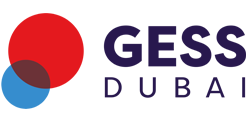UAE- Parents hail KHDA's new inclusive policy for students of determination
Parents are hopeful that the new inclusive policy announced by the Knowledge and Human Development Authority (KHDA) will change the attitudes and mindsets of school leaders, allowing people of determination to receive admission in mainstream schools without hassles.
The recently launched Dubai Inclusive Education Policy Framework will ensure that schools or any educational institution in Dubai do not refuse admission to students with special needs. The policy also asks schools to allocate a specific budget towards building and maintaining facilities and resources for these enrollees.
A few parents in Dubai shared their children's sad stories of being rejected from several mainstream schools, just because they have special educational needs or a disability (SEND). However, they are hopeful that positive changes will take place once this new policy is executed.
American expat parent April McCabe said schools "would not even consider meeting" her son after they learned he has non-verbal autism.
"We had no choice but to put him in a special needs school where a curriculum wasn't even offered. We taught him math, reading and writing at home in the afternoon," McCabe said. "He is lagging far behind because of this. He is capable of learning, does multiplication, division, reading and writing but I wonder how far he could go if society would not write him off. The KHDA also need to make special needs schools follow a curriculum and hold these schools accountable; our kids need the opportunity to reach their full potential and to contribute to society."
"I'm excited to hear about the KHDA's new inclusive policies. It's a step in the right direction and hopefully will change the world's view on how people look at disabilities. Every person has their strengths and weakness that we can all learn from."
Another parent, Abeer Ismail, said her son with Down syndrome was refused admission into more than 10 private schools, as they either had a lack of specialised teachers or the parents of other children were objecting to his presence.
"I was told (by schools) to put him in a centre for special needs as it will benefit him more," she said. "So, I enrolled him in one finally. It really hurts when your child is rejected because of a condition no one has control over, and that he isn't given his full rights in basic rights of life. I cried every time I walked out of a school that rejected him. In my opinion, the schools aren't ready and feared to take full responsibility for these children."
However, Ismail said she is "very happy and honoured" that the decision to implement KHDA's new policy was finally taken. She said that the inclusive policies are something that parents have been "fighting to bring about for a long time".
"Now, schools will be regulated and supported by entities to make inclusion a successful experience. Now we have hope that our children can be treated equally and earn their position in society just like anyone else," Ismail said.
Maryna van der Marwe, the parent of a child with cerebral palsy, believes the new policies are the "beginning of a new era". Her son was also rejected from private schools and enrolled at a special needs centre. "It is very good that the KHDA will enforce these (new policies). It will teach tolerance and acceptance, but it still won't be easy. It is the overhaul of a nation's education system and a very courageous step, but it will take time," she said.
KT Nano Edit - Laudable move
No child should be denied educational opportunities. It is a right which now covers children with special needs who need help to make it to the mainstream. The new law requires schools to take in students with special requirements and change teaching methods. We laud the government for have done its bit. It's now the turn of institutions to implement these landmark reforms which first require a change in mindset.
Parents also worried about costs Parents have welcomed KHDA's new inclusive education policy announcement; however, they remain worried about the hefty costs of education for people of determination.
An American expat parent, April McCabe, who has an autistic son, said high tuition fees is one of the main reasons her son is not currently enrolled at a mainstream school. McCabe and other parents voiced their concerns over the fee structure once people of determination are accepted into mainstream schools.
"Not only would we have to pay the tuition fees, we would have to pay for a learning support assistant which would cost an additional Dh40,000 to Dh70,000 on top of tuition," McCabe said.
Another parent, Abeer Ismail, whose son has Down syndrome, is also worried about the potentially high tuition. "Schools usually charge parents of determined kids the double, plus asking for a shadow teacher, which also adds to the total cost," she said. "We hope that the new inclusion policy will treat determined kids equal to the other kids in all aspects, including the fees."
Maryna van der Marwe's son has cerebral palsy. She said her family has "suffered tremendously" because of high therapy costs.
One of the policies listed in KHDA's policy framework states that schools must be able to ensure that the cost to families for required services, based on a student's disability, are "reasonable and reflect good value for money indicated by the efficiency of delivery and impact upon student outcomes".
The policy also states that on "rare occasions" - where students who experience complex and severe levels of special educational needs and disability require high levels of therapeutic or specialist provision within their educational programmes - educational institutions or the special needs centre must ensure that the additional fees to parents "represent the actual cost of the services" for the sake of transparency.





